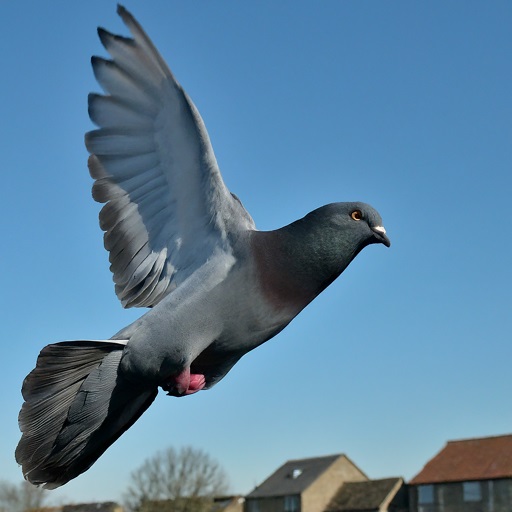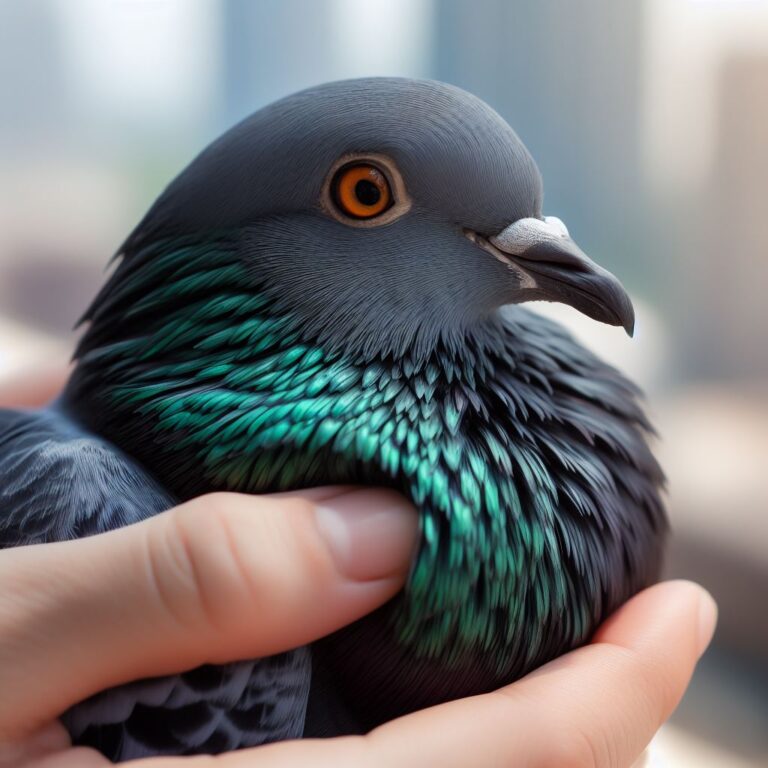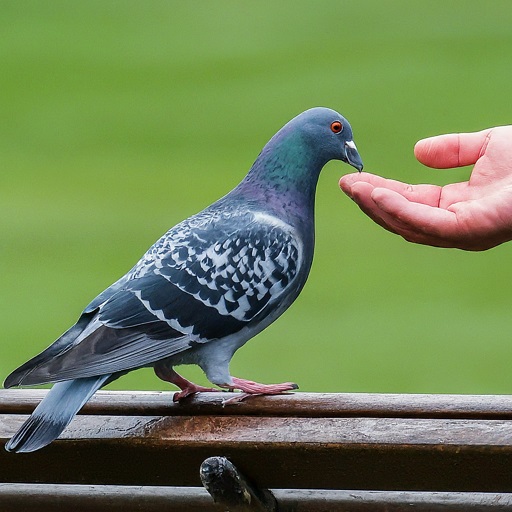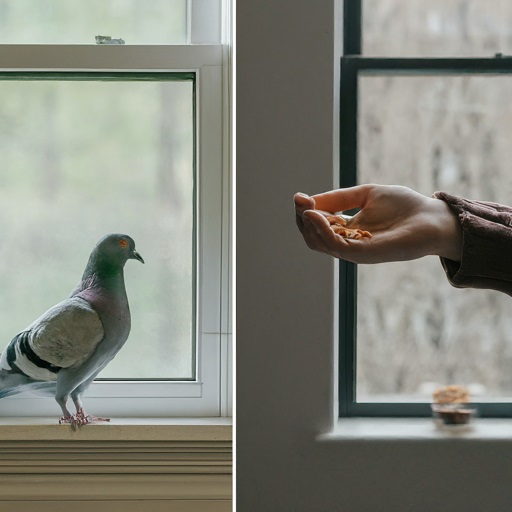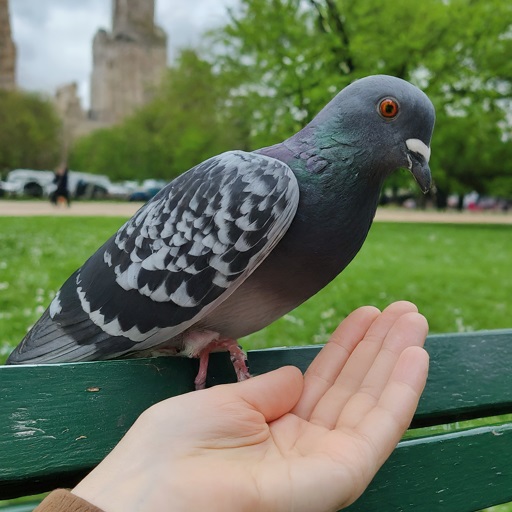Can You Have a Pigeon as a Pet in California?
Tourists visiting California when bird watching often wonder, ‘Are their pigeons in California’ Well, the answer is yes, because there are a couple of common types of pigeons in California that are common sites, especially in urban settings like parks, under bridges, windowsills, on rooftops, etc. If you are wondering, ‘If you can have a pigeon as a pet in California,’ this article is for you.
This article will discuss ‘Are pigeons protected in California’ and ‘Is It Legal To Keep Pigeons As Pets.’ You are not alone if you consider keeping a pigeon as a pet in this Sunny state. Many people have wondered about keeping pigeons as pets, and today I will highlight the possibility of housing them in captivity if you reside in California. Before I tell you, ‘Can you have a pigeon as a pet in California’ let’s first get an answer to the question: ‘Are there pigeons in California’ & if yes, what are the common ‘types of pigeons in California’ as well as protected ones in California.
Are There Pigeons in California?

Yes, pigeons are a common sight throughout California. Whether in bustling cities, Suburban neighborhoods, or even rural areas, you will likely spot these magnificent Birds gracefully strutting around & building nests. According to a survey conducted by the California Audubon Society, pigeons were among the state’s ten most frequently observed birds. In addition, you might already know that pigeons are popular for being highly adaptable & versatile creatures.
Their presence in urban areas is a testament to their ability to thrive in human-altered landscapes. Alternatively, pigeons’ preferred choice for nesting tends to nest in the middle of human settlements where they can find abundant food sources. Also, you can spot many perfect nesting spots in the nukes & crannies of buildings. You should know that their nest can be a problem if you do not pay attention to it.
Not only are pigeons known for being noisy, producing noise pollution (especially if they build nests around your office), but also, the dropping contains high amounts of uric acids that corrode metal, paints, as well as cement surfaces; you must learn ‘how to stop pigeons nesting’ in an unwanted place. If the nest is already in an unwanted place on your property, I will advise you to consider pigeon nest removal.
Hiring professionals who can relocate the nest of pigeons for you is best because disrupting their house is not humane. I have also shared & an in-depth article on ‘How to Get Rid of Pigeon Nests.’ But before you try to get rid of a pigeon nest, I will advise you to consider reading the articles ‘Why Are Pigeon Nests So Bad‘ and ‘What Happens If You Destroy a Pigeon Nest.’ Returning to the point, let’s take a quick look at the types of pigeons you will likely spot in California.
3 Types of Pigeons in California
Undout, California is home to many pigeon species, with each having its unique characteristics & habits. Below, I mention some of the most common pigeon types you will likely encounter in this Sunny golden state.
| Species Name | Size | Color | Habitat |
| Rock Pigeon | Medium | Various colors | Urban areas, cliffs |
| Band-tailed Pigeon | Large | Gray with a band | Forested areas |
| Eurasian Collared Dove | Medium | Pale gray | Suburban & rural areas |
Rock Pigeon (Columba livia)
One of the most common & widespread species of pigeon in the world tends to be the rock pigeon, also known as the common pigeon or city pigeon. Rock pigeons are abundant in urban parks, City centers, & areas with lots of human scrap food in California. Pigeons have adapted well to our environment & can be easily seen roosting on buildings & ledges. Also, it is quite easy to recognize them by their bluish plumage, iridescent neck feathers, & two black bars on their wings.
Band-tailed Pigeon (Patagioenas fasciata)
Another species that you are likely to spot in California a lot is considered to be a band-tailed pigeon. Band-tailed pigeon is native species to North America, including California, and are usually seen in forest state & wooded areas, especially in mountainous regions & coniferous forest in California. By appearance, band-tailed pigeons tend to have a white crescent-shaped band on the back of their neck, which gives them their name. Overall, their plumage is greyish with a pale yellow bill.
Eurasian Collared Dove (Streptopelia decaocto)
Lastly, another common pigeon you are likely to observe in California is said to be a Eurasian collared dove, considered a nonnative species that has repeatedly extended its range across the United States, including California. These birds are often spotted in urban & suburban areas as well as agricultural landscapes.
Also, you should know that both doves & pigeons come from the same family, Columbidae but with few distinct characteristics, features, & preferences. To learn, consider reading my articles on ‘Are pigeons doves‘? If now, what is the: difference between ‘Pigeon Vs Dove‘? Do you know that rock doves are said to be the wild ancestors of domesticated pigeons? Not only this, you might find a few similarities & differences intriguing to know. In addition, pigeons may be seen as mourning doves in appearance at first glance. Therefore I will advise you to consider reading articles on ‘Rock Dove Vs Pigeon‘ and ‘Mourning Dove Vs Pigeon.’
Note: You should note that rock pigeons & Eurasian collared doves are considered a nuisance species due to their habit of roosting in urban areas & potentially impacting native bird populations. On the other hand, the band-tailed pigeon is an endearing species that plays a crucial role in their local ecosystem.
If you think about interacting or observing these birds in California, ensure that you follow any local rules, regulations, or guidelines related to feeding or petting them, especially if they are considered invasive species or if there are concerns regarding disease transmission / environmental impact. There can be some local rules & regulations regarding wildlife protection & feeding them any food we have covered in depth in the article ‘Can You Keep A Wild Pigeon As A Pet.’ Returning to the point, you must maintain a safe distance from their well-being to avoid stress. Ensure you respect their natural behavior & habitat for their well-being & the ecosystem’s health. Now let’s look at the question, ‘Can you have a pigeon as a pet in California.’
Can You Have a Pigeon as a Pet in California?

Yes, you can keep a pigeon as a pet in California, but find a reputable breeder or rescue organization to get a well-socialized & healthy domesticated pigeon. Also, domesticated pigeons have been bred for many purposes, including racing & carrying messages, and are considered less robust than their wild counterparts. Also, it would be best never to consider releasing the domesticated pigeon back into the wild as they may not fare well / survive well.
Undoubtedly, pigeons as a companion are pretty cool to have & they can be incredibly affectionate & social beings. But before you try to head out & find your feathered pigeons. You must understand the proper difference between domesticated & wild pigeons. As I told you, you should always consider getting domesticated pigeons as pets, not wild ones.
Wild pigeons, also called Rock pigeons or feral pigeons, are said to be the descendants of domesticated pigeons introduced to North America. Over time, these pigeons have adapted well to urban environmental life in California. A study by the University of California found that pigeons are remarkably excellent at adapting to urban life. They are said to be pests in many areas where they are abundant. If you are considering keeping wild ones as pets, there are many things you need to know. Consider reading my other article on: Can You Keep A Wild Pigeon As A Pet Now, let’s look at the answer: are pigeons protected in California?
Are Pigeons Protected in California?
Like any other wild species, pigeons also enjoy certain protection in California. According to the California Department of Fish & Wildlife, all native Bird species, including pigeons, are safeguarded under the state fish & game code & various federal laws. Therefore, if you have been considering adopting & pigeons as pets in California, it can be a bit of a mixed bag.
Even though it is not illegal to keep pigeons as pets, there are a few guidelines that you must follow. You can’t just pick up any wild pigeon from the street & make it your feather friend companion because that’s a big no. I will advise you to get a domesticated pigeon from a licensed breeder or adopt from a pet store/organization to be on the right side of the law & avoid breaking any rules. Also, make sure that you comply with your local rules & regulations if there are any.
Is It Illegal to Kill Pigeons in California?
Even though pigeons are a part of our urban landscape, conflicts are likely to arise between humans & these birds due to many issues. In some areas where they are present in high populations, they are considered pests. But violence is never the answer. It is illegal to harm or kill any pigeon in California without proper authorization, as it goes against state protection laws.
Also, if there is a pigeon control requirement, the society of the United States highlights the importance of using only nonlethal methods for this. Therefore, you should never resort to harmful means & always consider nonlethal pigeon control methods like bird netting or Predator decoys. Also, ensure that you are ensuring proper waste management & keeping food sources secured to discourage pigeons from gathering in large numbers.
Conclusion
I hope you know you can have a pigeon as a pet in California. You should know that pigeons in California are more than just City dwellers. They are said to be a fascinating part of our environment. Whether you are just an admirer of their aerial acrobatics or considered to adopt a bird as a pet, make sure you respect their boundaries & place in the local ecosystem.
I have given my best to give you all the information you need on the question, ‘Can you have a pigeon as a pet in California.’ If you find this article helpful, then consider sharing it. Your share will help many people learn about the question ‘Can you keep a pigeon as a pet in California’ and what they need to consider before adopting one. Also, share your pigeon experience in the comments below because we would love to hear from you. Do check my other helpful guide on Pigeon as a Pet. See you in the next post, till then, take care & goodbye.

